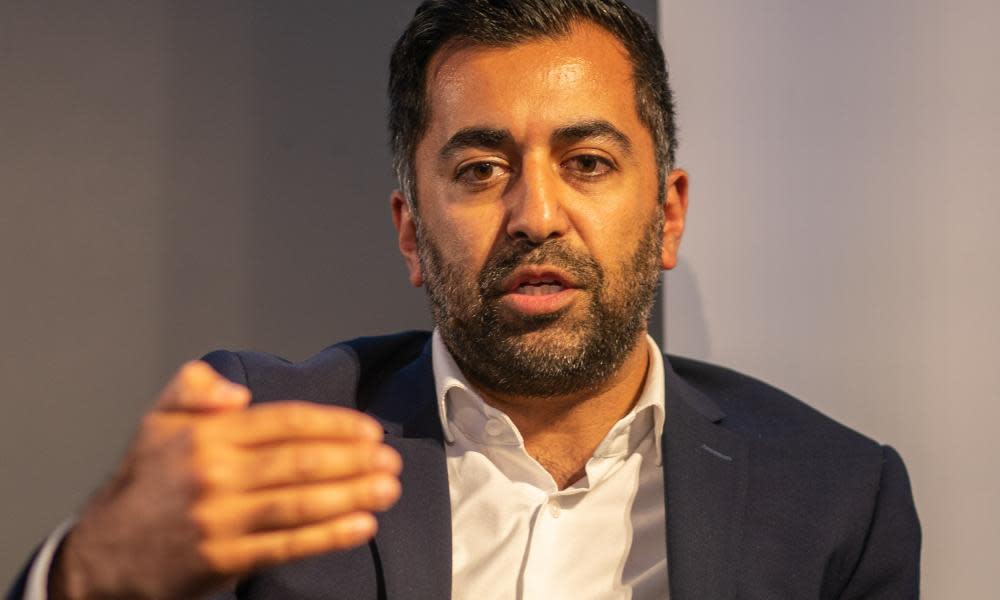Scottish government plans trial of four-day week in civil service

Campaigners for a shorter working week have welcomed plans to trial a four-day week by civil servants in Scotland.
The Scottish first minister, Humza Yousaf, is expected to announce on Tuesday that Scottish government agencies will begin a four-day week pilot project later this year.
The pilot, to be announced as Yousaf sets out his government’s legislative programme for the next year, would be the first time civil servants have tested a shorter working week in the UK.
Scottish government sources have indicated that the first trials would be carried out by public sector agencies at arm’s length from ministerial departments. Scotland’s business enterprise agencies have shown interest in the proposal.
Adopting a four-day week has won significant political support, including from Scottish Labour and the Welsh government, but so far only South Cambridgeshire district council has introduced pilot projects to test it in practice, with some success.
South Cambridgeshire initially launched a three-month pilot but in May announced it would be extended to a year, and expanded from office-based staff to include refuse workers. The council said the pilot had increased staff retention and cut costs.
In July, Lee Rowley, the UK local government minister, wrote to the council, urging it to drop the “experiment” and arguing it was poor value for money. South Cambridgeshire defended its decision and has carried on with the expanded scheme. To date, the government has taken no action to stop it doing so.
Related: ‘The council should be setting an example’: Cambourne’s experiment with the four-day week
Joe Ryle, the director of the 4 Day Week campaign, said Scotland would be breaking new ground if the measure was adopted by the civil service for the first time. “It would be very much spearheading this,” he said.
The initiative is expected to be one of a number of new policies that Yousaf will unveil in his programme for government on Tuesday, as he attempts to reinvigorate the government, his premiership and the Scottish National party (SNP) after six bruising months following Nicola Sturgeon’s decision to resign as first minister in February.
Yousaf has been the first SNP leader in decades to face open revolt from his party’s parliamentarians over policy after narrowly beating his nearest rival, Kate Forbes, to the leadership.
Forbes and her allies have openly criticised the Scottish government’s cooperation agreement with the Scottish Green party, which has two junior ministers – a deal that has been hit by several significant policy reversals over inshore fisheries conservation and a national bottle-deposit scheme.
With opinion polls showing that the SNP has lost its commanding lead over Labour, Yousaf also faces a challenging byelection in Rutherglen and Hamilton West, which is expected to take place in October.
Yousaf will use Tuesday’s policy statement to attempt a reset for his government by establishing his own brand of leadership. New government bills on justice, the environment and the climate crisis are expected, as well as an emphasis on anti-poverty measures.

 Yahoo News
Yahoo News 
